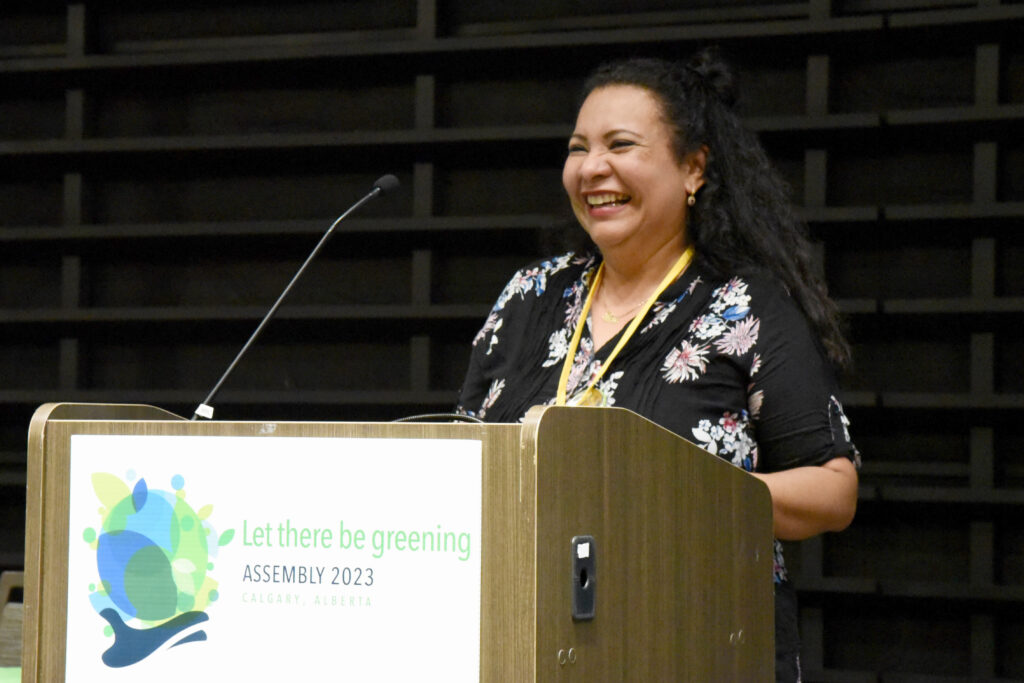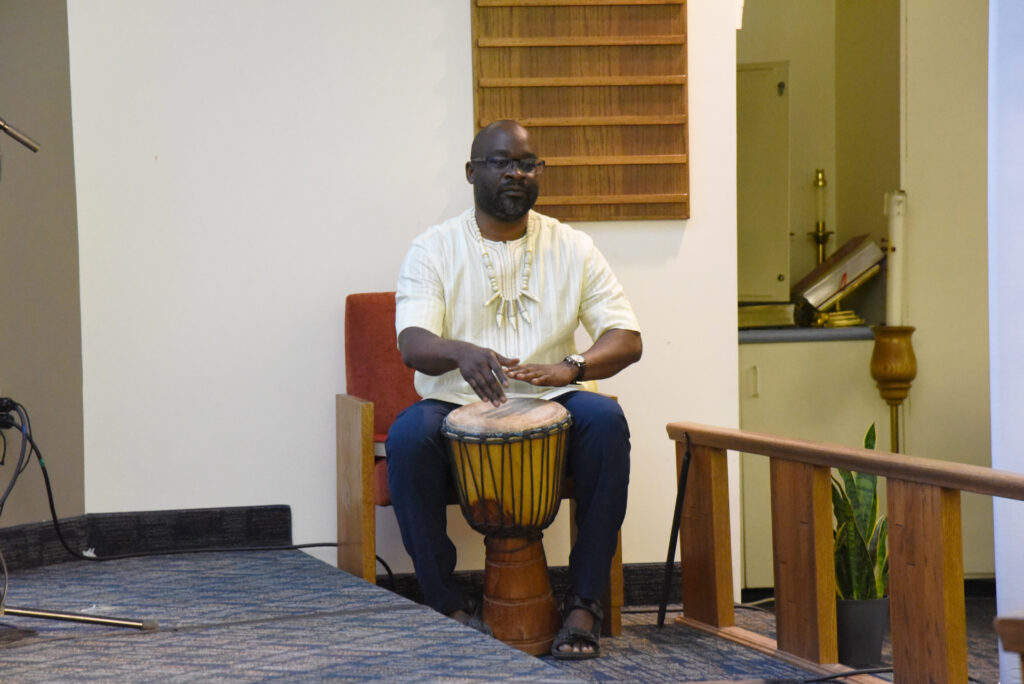“Talk about specific Black church leaders… Talk about theologians, about writers, and their important contributions to the church.
Show the ELCIC church members different perspectives and the experiences of Afro-Canadians… it is a time to correct past wrongs by joining others in saying Black is beautiful and acknowledging Black excellence,” says Carmen Ramirez, ELCIC’s Assistant to the Bishop for Equity, Diversity and Inclusion, on how ELCIC members and congregations can lift up Black History Month.
Black History Month 2024: Black Excellence – A Heritage to Celebrate, a Future to Build
February marks Black History Month – a time for people across Canada and the United States to participate in Black History Month events and celebrations to honour the heritage and legacy of Black people living within the two countries, their families and communities they are from.
Through the ongoing work of its task forces, the Evangelical Lutheran Church in Canada continues to strive to be a “diverse, inclusive community that celebrates all and upholds life-giving relationships”, as described in its vision statement. Black History Month is time for all ELCIC leaders, congregations and members to learn, a time to educate, and time to grow.

“Black History Month is a time to recognize God’s love for Afro-Canadians,” said Carmen Ramirez, who serves the ELCIC in a newly-formed position as the Assistant to the Bishop, Equity, Diversity and Inclusion. “It is great that the ELCIC recognizes Black History Month because it is important to acknowledge the contributions of Afro-Canadians and Black leaders in Canada, since for many years their contributions have been ignored. They have also been viewed as less than human.”
The theme for Black History Month 2024 is Black Excellence: A Heritage to Celebrate; a Future to Build.
“Black History Month is important to me as an Afro-Latina because there is a focus on uplifting the contributions that Afro-Canadians have made throughout the years despite racism and oppression,” Ramirez added. “It is a time when a young Afro-Canadians can say, ‘hey, that event or contribution was made by someone who looks like me’. Afro-Canadians have people to look up to and be encouraged to keep going ahead with their own dreams. A kind of hope that their dreams can also come true.”
The month of February is an opportunity to reflect upon and celebrate the important contributions from those of African descent to past and current Canadian culture. All churches within the ELCIC are encouraged to consider using some of the prepared Black History Month resources during February.
For Rev. Dr. Ali Tote – Assistant to the Bishop of the Saskatchewan Synod – Black History Month was something new to him, after moving to Canada from Cameroon 25 years ago.

“Over there, you celebrate who you are each and every day,” Rev. Dr. Tote said of his homeland. “There is no need to set apart such a day or month. However, with the reality of diaspora, and Black people moving here from Africa and other parts of the world, it has become something that people living in Africa are actually aware of. But again, not only is it a time to celebrate accomplishments, but also a time to recognize the enormous challenges that Black people face on a daily basis here in North America.”
As for what the Church can do to continue in its efforts in becoming a place more inclusive to all, Rev. Dr. Tote looked back to an old African proverb. “I am because the community is,” he recalled. The saying is a reference to the togetherness of many African communities and the hurt that they share when one member is suffering – but also the idea of sharing in one another’s joy and becoming a more supportive and understanding people.
“Personally, I am grateful for the ELCIC in making me a part of the family and welcoming and embracing me; it is something I see at all levels,” he continued. “But we do still have a ways to go to ensure that that we are all at the same page, learning, growing and opening our hearts, hands and lives to embrace those that are different. It is true for Black History Month for Black people, but it is also true for any person regardless of where they come from or their minority or marginalized status. The church is living out the gospel in that way by being inclusive, open, welcoming and embracing. We are not to just say it, but live it out. Because we say a lot of things, so let’s live it out.”
Ramirez says the best ways for congregations and their members to help lift up Black History Month is through simple conversations and lessons.
“Talk about specific Black church leaders,” she said. “Talk about theologians, about writers, and their important contributions to the church. Show the ELCIC church members different perspectives and the experiences of Afro-Canadians… it is a time to correct past wrongs by joining others in saying Black is beautiful and acknowledging Black excellence.”
To learn more about Black History Month, visit the following:
- Eastern synod racial justice committee
- https://www.thecanadianencyclopedia.ca/en/article/black-female-freedom-fighters
- https://www.thecanadianencyclopedia.ca/en/article/black-history-in-canada-1960-to-present
- https://blackloyalist.com/
- https://www.cbc.ca/news2/interactives/black-history-month/
- https://www.bcg.com/publications/2020/reality-of-anti-black-racism-in-canada
- https://www.communitystories.ca/v2/bc-black-pioneers_les-pionniers-noirs-de-la-cb/
- https://www.cbc.ca/radio/rewind/africville-a-community-destroyed-1.2919404




